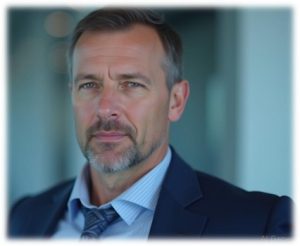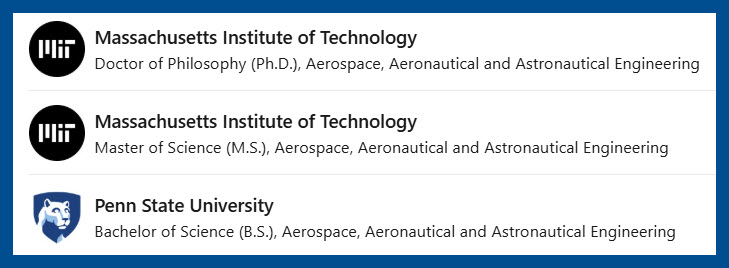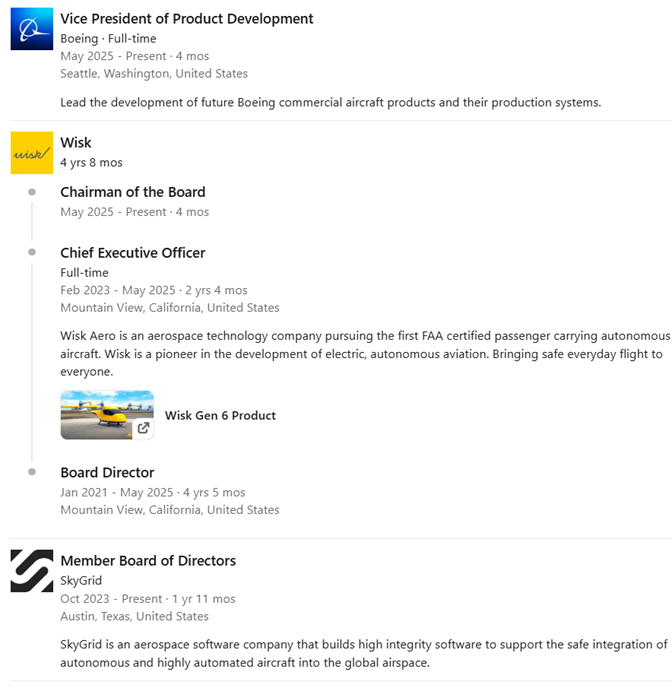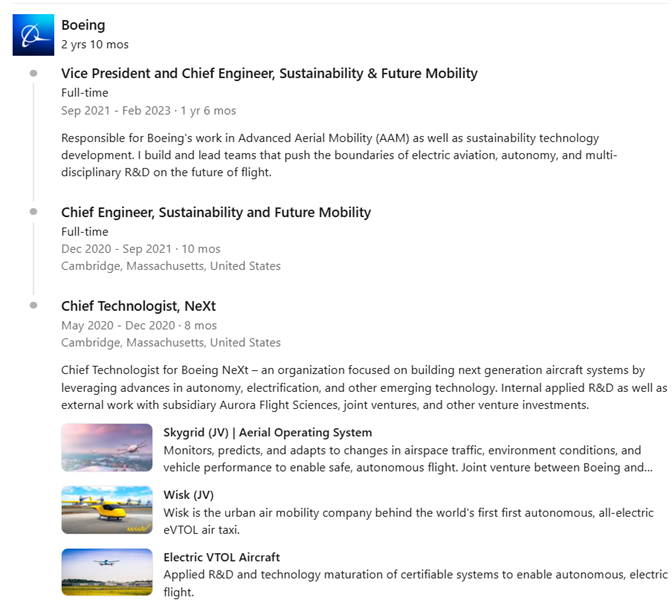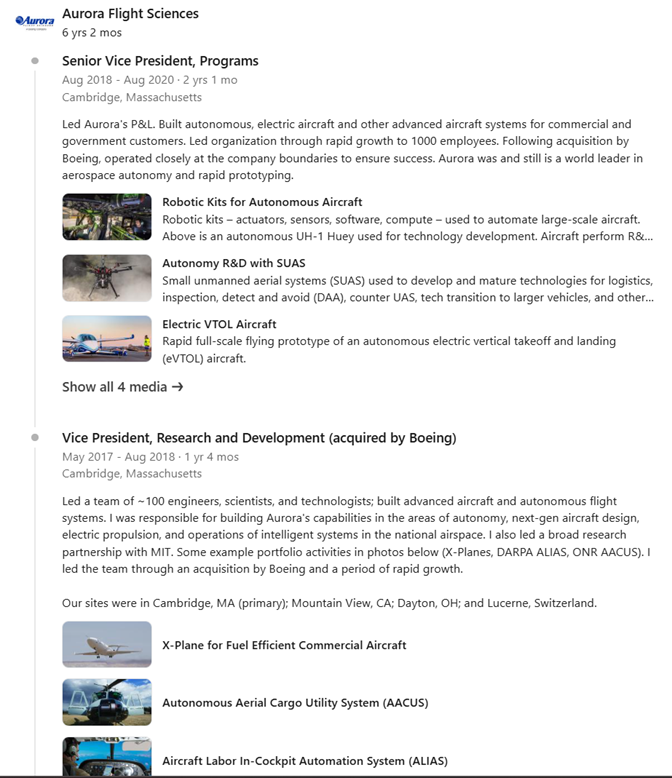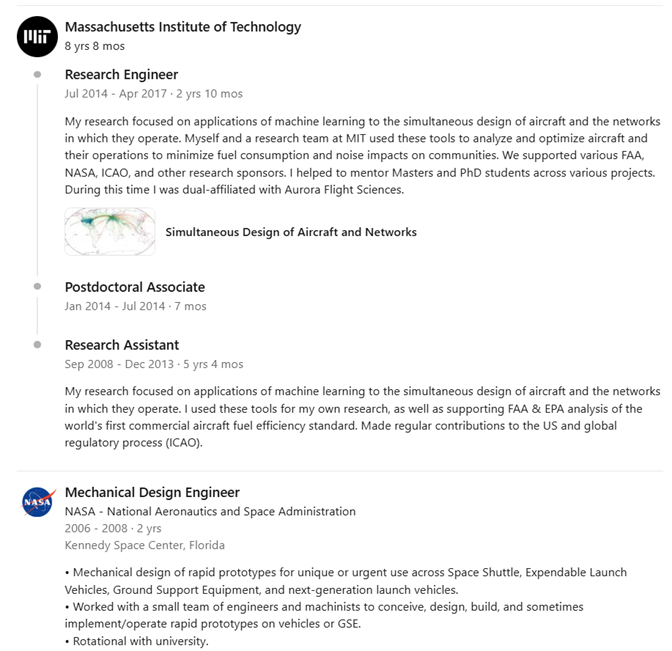Boeing’s Brilliant appointment of an important executive

A number of articles (one is included below) have praised the US’s aeronautical giant for a MOST SIGNIFICANT promotion, perhaps even equal to the Board’s selection of KELLY ORTBERG as the long awaited CEO of Boeing.
There was a time in Renton, Washington when the most prominent engineer appeared to have been a financial engineer. The position was charged with plotting off costs against benefits. The goal, perhaps too focused, was to manufacture aircraft at costs below the EU’s aeronautical champion, AIRBUS’ Toulouse products.
The results of that Board directives are too painful to repeat again. The consequences of paying lip service to FARs, QC, adherence to its responsibilities as an ODA, among others have significantly damaged the Boeing global good name
The significant news from Arlington, VA/Chicago, IL/Renton, WA (some or all of the above?) is the appointment[1] of 39-year-old BRIAN YUTKO as its Vice President and Chief Engineer for Product Development at Boeing Commercial Airplanes, a position from which he will lead integrating engineering advances and designing new aircraft.
Yutko’s academic training, experience and personality are all critical to his new position.
- ACADEMIC
-
- DETAILS
- PhD Focus: Yutko earned his PhD from MIT in 2014, working under Professor R. John Hansman. His research explored how aircraft design and operational strategies could dramatically improve FUEL EFFICIENCY AND REDUCE EMISSIONS.
- DESIGN REFERENCE MISSIONS: One of his studies examined how tailoring aircraft design to specific mission profiles—like short-haul versus long-haul—could optimize fuel use. He proposed using fuel stops to allow short-range aircraft to operate efficiently on longer routes without compromising design.
- NASA COLLABORATION: Yutko contributed to NASA-backed projects like the D8 “Double Bubble” concept, which aimed to reduce fuel consumption by up to 70% through innovative fuselage and wing configurations.
- EXPERIENCE
THAT’S EXQUISITELY RELEVENT, EXTENSIVE EXPERIENCE FOR 39!!!
-
PERSONALITY
- Multiple outside assessments of the Boeing Culture, especially as it pertains to SAFETY, found significant breaches within the Company. Below are quotes from his academic and work associates who find him to be “brilliant’, “social”, “forward thinking” and endowed with a leadership style conducive to building trust.

There once was a phrase, “if it’s not Boeing, I’m not going.” Too early to be printing out T shirts with that moniker, yet, but it seems to be a promising step back to Boeing’s historical strengths.
Boeing taps 39-year-old engineer Brian Yutko to lead next-gen aircraft development in strategic shift
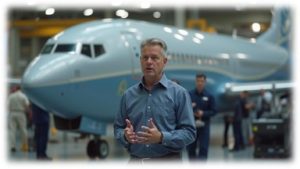
Boeing has quietly elevated 39-year-old BRIAN YUTKO to the role of chief of commercial airplanes product development, a pivotal appointment that signals a potential shift in the company’s strategic direction. Yutko, who previously worked as a researcher at MIT and later led autonomous air taxi startup Wisk, is now tasked with spearheading the DESIGN AND DEVELOPMENT of next-generation aircraft for Commercial Airplanes (BCA), the company’s largest and most critical division. With annualized revenue around $45 billion, the unit alone would rank in the Fortune 500 around 100th[2].
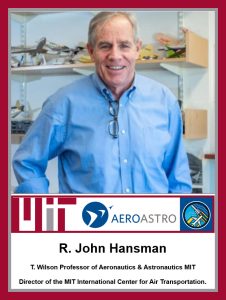
Yutko’s appointment has been viewed by some as a step toward restoring Boeing’s former emphasis on engineering excellence and product innovation1. During his time at MIT, he conducted groundbreaking research on flight efficiency and emissions reduction, and his thesis advisor, R. John Hansman, has described him as a “classic MIT, somewhat brilliant guy” 1. Gary Gysin, former CEO of Wisk and a mentor to Yutko, noted that while one individual alone cannot fix Boeing’s complex challenges, Yutko’s TECHNICAL BACKGROUND AND LEADERSHIP STYLE could attract other forward-thinking engineers1.
Boeing is currently at a crossroads. The company has faced years of setbacks, including two fatal 737 Max crashes in 2018 and 2019, union strikes, and regulatory constraints. CEO Kelly Ortberg has taken steps to stabilize the company by securing a union agreement, avoiding criminal charges, and boosting production of the 737 Max. However, to regain competitive ground against Airbus, Boeing must introduce a new, disruptive aircraft that sets industry benchmarks in fuel efficiency and environmental impact 1.

Yutko’s background includes work on NASA-backed projects such as the D8 “Double Bubble” aircraft concept, which promised up to 70% fuel savings through innovative fuselage and wing design. This experience aligns with Boeing’s need to explore bold new aircraft configurations. Potential designs under consideration include variants of the D8 and the X-66 truss-braced wing (TTBW), though the latter was recently deprioritized by Boeing and NASA. Yutko has expressed openness to various technological paths, including alternative fuels and automation1.
The appointment of Yutko also reflects a broader cultural shift within Boeing. During the 2010–2018 period, the company prioritized shareholder returns over R&D and engineering investment, a strategy that contributed to operational and safety failures. Now, under Ortberg’s leadership, there is a renewed emphasis on product development and long-term innovation. Yutko’s leadership is expected to play a crucial role in this transformation1.
Yutko’s personal journey adds to his credibility as a leader. Born in rural Pennsylvania, he was the first in his family to attend college, and he has consistently demonstrated a knack for problem-solving and collaboration. Colleagues describe him as both driven and approachable, with a rare ability to blend rigorous technical thinking with social ease. His MIT education and hands-on experience with experimental aircraft have prepared him for the immense challenge ahead1.
As Boeing moves forward with the design of its next major aircraft, the success of Yutko’s leadership will be a key indicator of whether the company can reclaim its position at the forefront of aviation innovation. The stakes are high, but with Yutko at the helm of product development, there is growing optimism that Boeing is beginning to fly in the right direction1.
[1] Technically it is a transfer within the Boeing’s larger structure; his previous job was CEO at WISK, wholly owned by Boeing
[2] How Boeing is quietly betting on a ‘brilliant’ 39-year old engineer—and setting the stage for a turnaround
